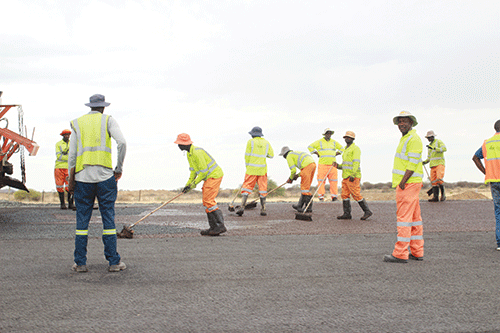The Road Fund Administration (RFA) states that current Road User Charges (RUCs) do not generate enough revenue to cover the costs of maintaining the nation’s roads network.
This means the company is faced with massive funding gaps, and it is now pleading with government to rescue it with urgent intervention.
The RFA’s executive for programme management, policy and advice Namene Kalili this week said the company is experiencing underfunding, which is expected to negatively impact national road networks. He noted that the RFA is expected to experience a N$3.6 billion funding gap during the current financial year, and a N$15 billion funding gap over the five-year business plan, running from April 2024 to March 2029. The RFA was established to manage the road fund and the road user charging system with the purpose of securing and allocating sufficient funding to realise a safe and efficient roads sector in the country.
Thus, to tackle the challenges, the RFA is proposing RUC adjustments, going forward. The proposals include a N$1 per litre increase in fuel levy, 20% increase in mass distance charges, cross-border charges, and abnormal load fees, while they need a 10% increase in road carrier permits.
“The RUCs tariff adjustments remain important and necessary in order for the RFA to close the funding gap, to optimally fund the road network, and to further address the rapidly-deteriorating conditions of both national and event roads,” said RFA CEO Ali Ipinge at the opening of the 2023 annual business plan stakeholders’ consultative workshop on Wednesday.
He added that there is an indication that the funding requirements to maintain the current network in acceptable condition and to close the funding gap would require the fuel levy to be pitched at N$2.98 per litre by 2026. Two years ago, Ipinge noted the RFA proposed to the finance ministry for an increase in fuel levy for financial years 2022/23, 2023/24 and 2024/25. Unfortunately, during financial year FY2022/23, no adjustments in RUCs were approved.
Between May and October last year, the RFA fuel levy was reduced by 50% from N$1.48 to N$0.74 per litre. This was done to provide relief to road users reeling from high fuel prices, rising interest rates, and the higher cost of goods and services.
“The resultant revenue loss of about N$350 million was absorbed by the road fund from its reserve fund and importantly, the funding commitment to all approved authorities were honoured. For next year’s budget, the RFA has received funding requests totalling N$7 billion,” the CEO revealed. Provided the RUC adjustments are inadequate or sub-optimal, Ipinge said the RFA will plead with the government to make supplemental budget allocations in the medium-term expenditure framework to assist the road sector in meeting some of its funding requirements.
At the same occasion, RFA board chairperson Emma Haiyambo cautioned that the current level of underfunding will erode Namibia’s roads asset value and raise vehicle operating costs.
“These increases proposed are deemed necessary to close the funding gap, and slow the growth of the maintenance backlog,” she stated. -mndjavera@nepc.com.na



